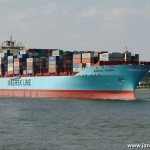American Spies
 Michael Sulick’s American Spies is the continuation of his history of American spies i.e. individuals who have spied on American. His previous book covered the period from the Revolutionary War to the beginning of the Cold War. His latest book, American Spies, covers the period from the Cold War to the present. Sulick undertook quite a challenge with this book. Simply the large number of spies requires more of a survey approach to this history. Sulick developed a flexible organization devoting a chapter to each of major spies of recent history. For the lesser spies he groups them by country, China and Cuba or timeframe. The result is a well organized easy reading narrative.
Michael Sulick’s American Spies is the continuation of his history of American spies i.e. individuals who have spied on American. His previous book covered the period from the Revolutionary War to the beginning of the Cold War. His latest book, American Spies, covers the period from the Cold War to the present. Sulick undertook quite a challenge with this book. Simply the large number of spies requires more of a survey approach to this history. Sulick developed a flexible organization devoting a chapter to each of major spies of recent history. For the lesser spies he groups them by country, China and Cuba or timeframe. The result is a well organized easy reading narrative.
This approach also avoids extensive rehashing details of spies like Boyce/Lee, Walker, Ames and Hansen that have been covered in detail in individual books.
Sulick pulls no punches when it comes to failures of US counterintelligence activities. Though the counterintelligence failures to detect spies such as Walker, Ames or Hansen are well known, this book reinforces the decades long turf wars that prevented the CIA, NSA and FBI from working effectively together. All the agencies have suffered from an ego trip that blinded them from believing one of their own could be a traitor.
Beacuse of the long lasting implications to CIA counterintelligence, Sulick also includes a chapter on the devastating impact that the master spy hunter, James Angleton, had on the CIA. “The Angleton legacy would haunt the CIA and provoke a backlash that would irreparably damage the spy agency.”
In each case covered by Sulick he also provides a glimpse into the psyche and motivation of the spies. For many (or perhaps most) a primary motivation was money troubles and the quick fix by selling secrets. The most incredible parts of the money story are how easy it would have been to check the spies financial health and how little money was involved (in most cases) versus the consequences.
An interesting thread noted by Sulick in his discussion of the FBI spy, Robert Hanssen, is the relationship with his father. Benedict Arnold, John Walker, Clayton Lonetree, Rick Ames, and Robert Hansen all had abusive fathers that shaped their son’s treachery!
In summary, American Spies doesn’t provide major new revelations but it is an excellent concise survey of modern spying in America. His writing style is light and easy to read.
Posted: September 3rd, 2013 under Books.
Comments: none



 On Jun 5 2012 I had the opportunity to witness one the rarest of astronomical events, the transit of Venus across the sun. This event only occurs twice each century eight years apart. The Venus transit will not occur again for another 108 years! Fortunately for me I witnessed the transit from a field only a few miles away at the University of South Carolina – Aiken. However, I did share one aspect with 18th century astronomers – the fickle nature of cloud cover!
On Jun 5 2012 I had the opportunity to witness one the rarest of astronomical events, the transit of Venus across the sun. This event only occurs twice each century eight years apart. The Venus transit will not occur again for another 108 years! Fortunately for me I witnessed the transit from a field only a few miles away at the University of South Carolina – Aiken. However, I did share one aspect with 18th century astronomers – the fickle nature of cloud cover!
